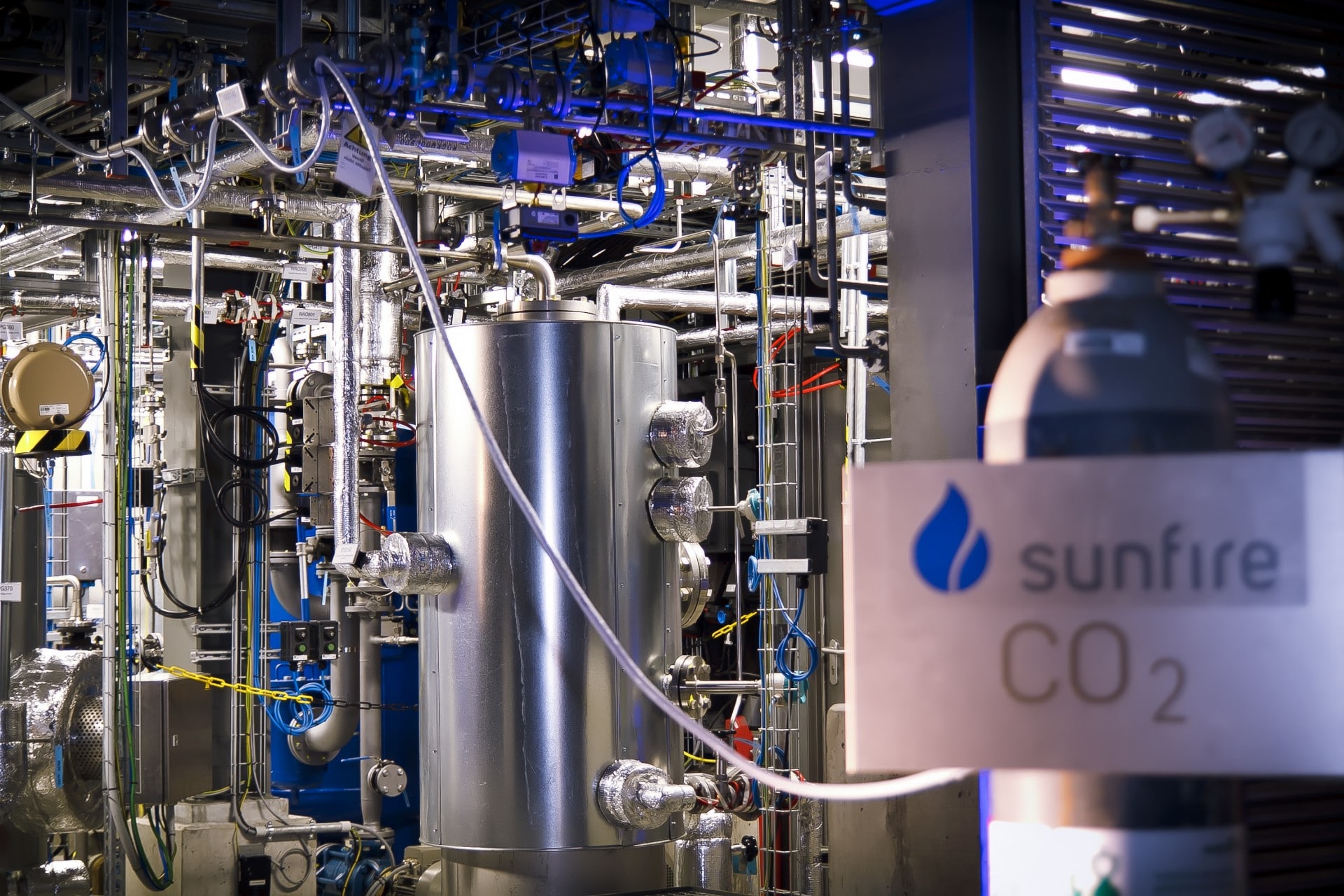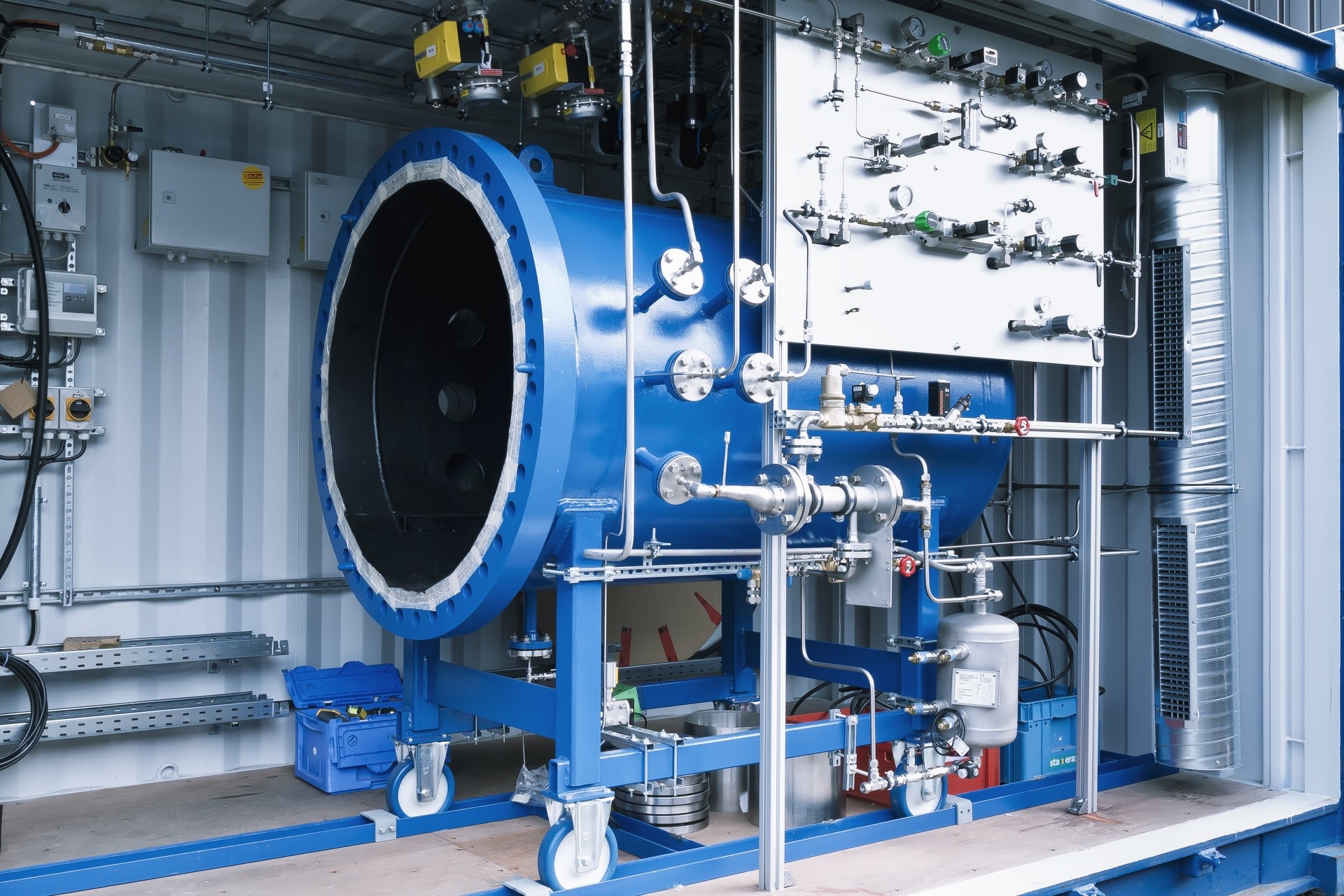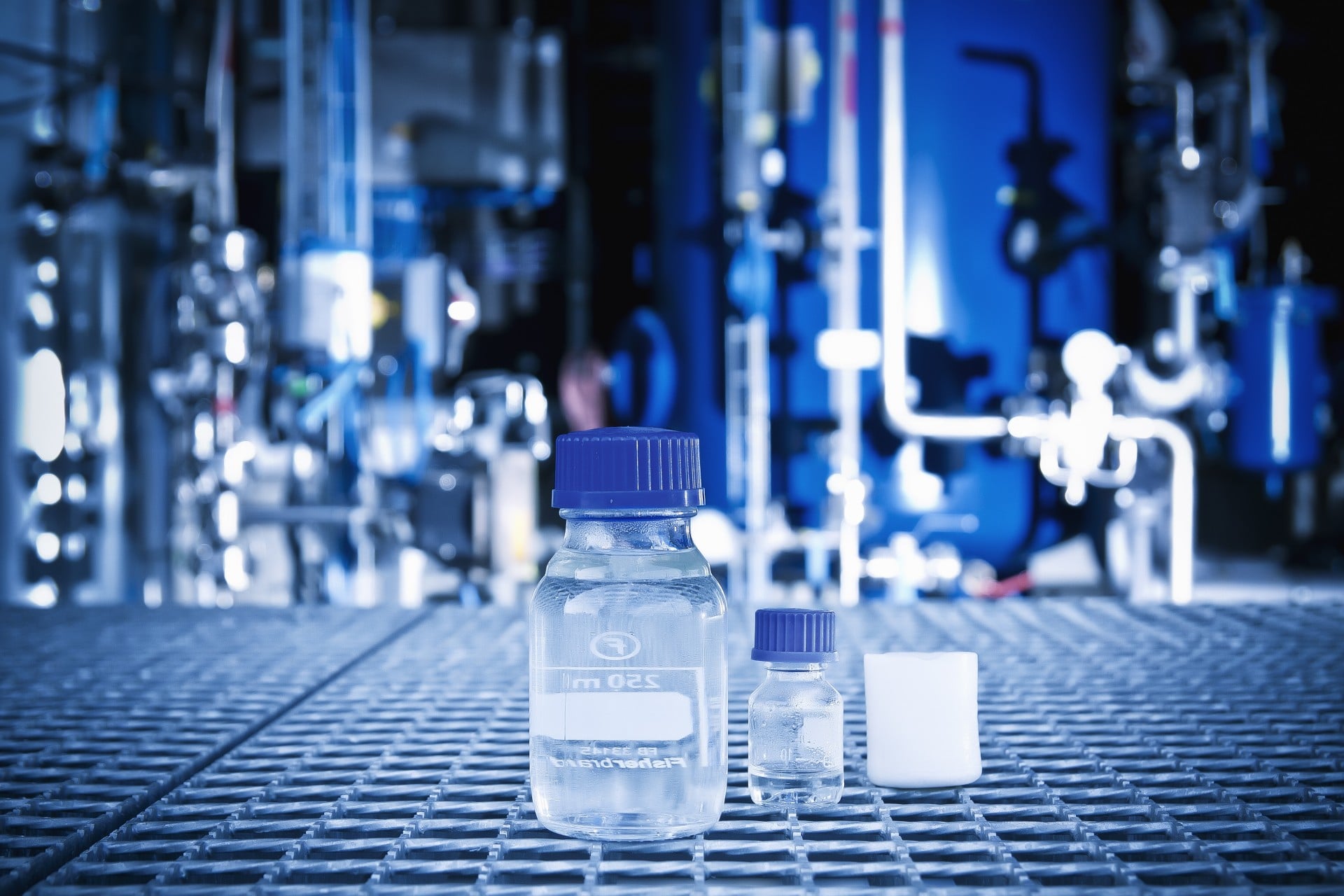Germany (Dresden)
Never before have humans placed such a strain on nature to fuel inexhaustible demands for technology, travel and other worldly possessions. The electric cars considered an eco-friendly alternative to diesel-powered cars aren’t as healthy for the environment as thought. They plug into urban power grids, which still use polluting fossil fuels such as coal.
In April 2015, German car manufacturer Audi made a breakthrough by harvesting carbon from the sky to create the world’s first synthetic petroleum. Called ‘blue crude’ or ‘e-diesel’, it could be the first 100% non-polluting source of energy to power cars of the future: “Based on CO2 it will allow long-distance mobility with virtually no impact on the climate,” says Reiner Mangold, Audi’s chief of sustainable product development, in announcing the first batch of e-diesel.
Working with green energy company Sunfire in Dresden, Germany, researchers are using complex scientific processes to create the main compound of petrol – hydrocarbon – from air, water and carbon dioxide. Existing energy methods such as solar power and hydropower are harnessed to break down steam into hydrogen and oxygen through a process called ‘high-temperature electrolysis’. The hydrogen reacts with CO2 to create the raw blue crude liquid, which is then refined to make e-diesel.
Following successful trials on the road, Audi will need to scale production to commercial levels. “Using CO2 as a raw material represents an opportunity not just for the automotive industry in Germany, but also to transfer the principle to other sectors and countries,” says Reiner Mangold, head of Sustainable Product Development at Audi. Sunfire hopes to get e-diesel onto the market by 2030, by which point it could be used to replace petrol completely – and this fuel of the future could be used in other countries and industries.
Audi e-diesel was mapped by author and futurologist Mark Stevenson in his AtlasChart Top 5 – coming soon. Read his full FutureHero interview here.
Bio
Natasha Drewnicki has rendered her insatiable nosiness into a career in journalism and PR. When not juggling projects in Barcelona, she'll be surfing in North Spain or Cornwall.
Project leader
Christian von Olshausen, CTO, Sunfire
Support the Atlas
We want the Atlas of the Future media platform and our event to be available to everybody, everywhere for free – always. Fancy helping us spread stories of hope and optimism to create a better tomorrow? For those able, we'd be grateful for any donation.
- Please support the Atlas here
- Thank you!





